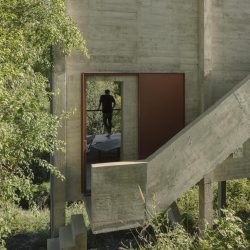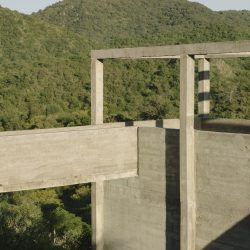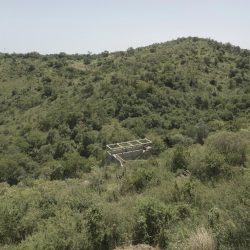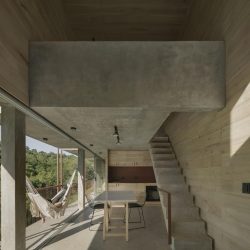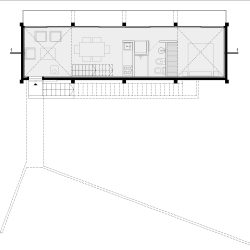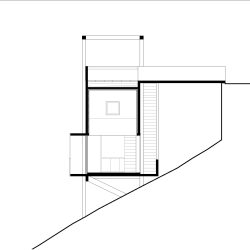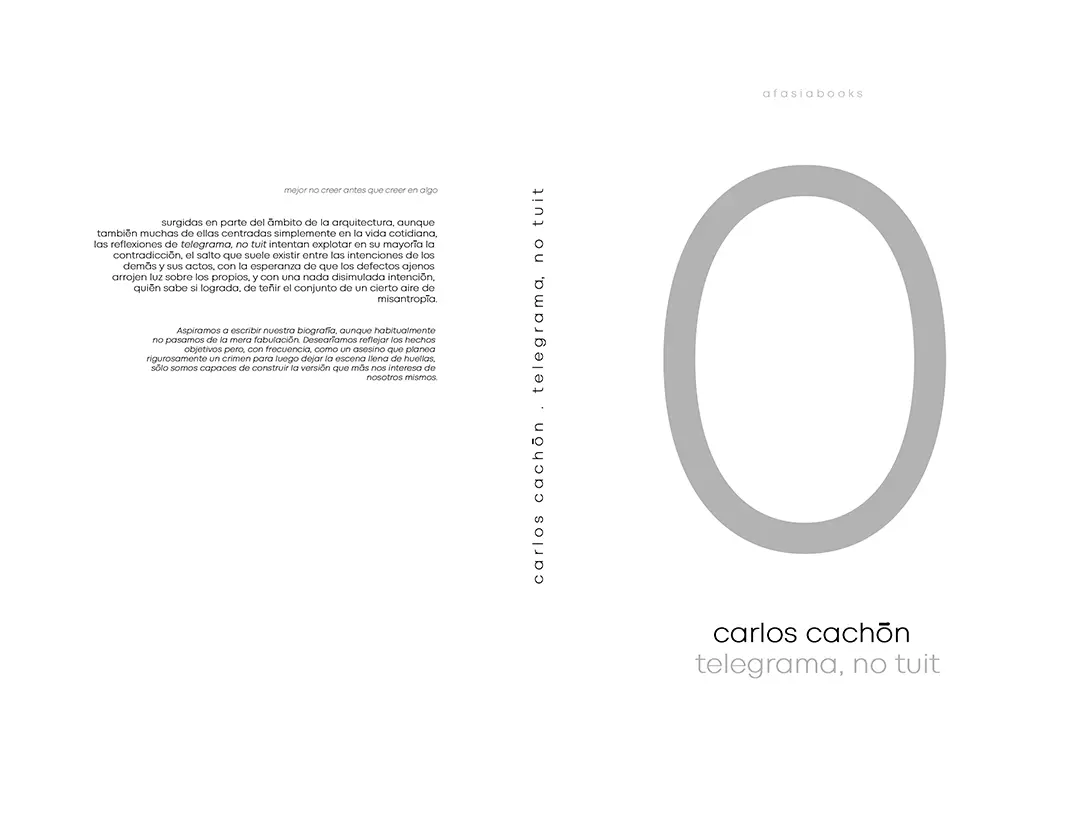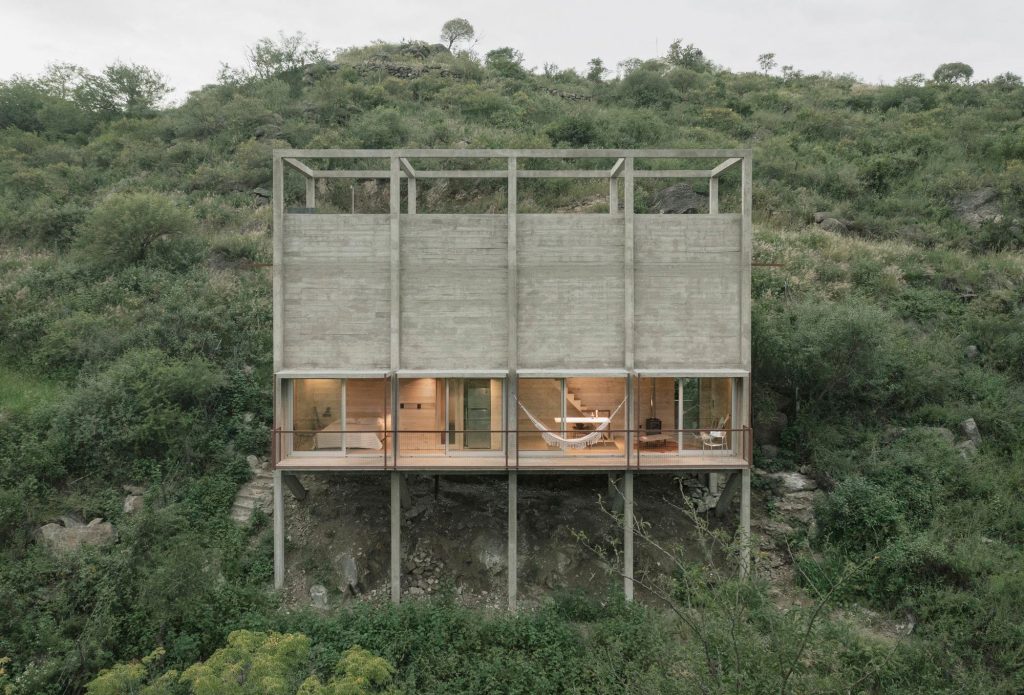
TECTUM (Agustín Berzero Manuel González Veglia) . photos: © Federico Cairoli
The project unfolds in Córdoba, on a nearly 45-degree sloping terrain with the sound of the river and views of the mountains and treetops. A house for living, working, and writing in an environment of solitude and tranquility that allows philosophical work.
It is created with complementary opposites. While its lower part is heavy, the upper portion is lightweight. It barely rests on supports When open, it captures the views and welcomes the sun. It can also be firmly closed for introspection.
It is a piece of architecture that adds value to the landscape. The project can be accessed from the roof, which does not exceed the highest point of the lot to avoid disrupting the views. It is gradually traversed until entering from the lower part through a contemplative journey. This approach enables access to the natural terrain.
A clear geometry is defined with a retaining wall in relation to the mountain; a bridge extends and adds connection. The geometry is narrow like the footprints of a “goat”. Similar to its steep slope, the program is stacked in multiple stories from its terrace to the ground.
Seen from the outside, it is a single-material structure that becomes a massive piece emerging from the site. Reinforced concrete is the main material used for the structure, internal spaces, and for the relationship with the ground and the sky. Its walls have a rough finish capable of revealing the passage of time and imprinting the climate and tones of the location on the structure. Inside, the space has unique proportions and big changes in height. It includes big openings and complete closures to reveal or conceal the landscape. Wood is used, a warm material that contrasts the rugged exterior and releases its distinctive scent upon entry.
The main area for living, dining, cooking, and waking up connects with the landscape at the height of the tree canopy. In contrast, an introverted mezzanine, with an open floor plan, is suspended over the entire void. It is illuminated from below, creating an environment for introspection. It offers a place for writing and reading,disconnected from the outside.
Far from being a fragile construction it is a new piece of the mountain with formal synthesis and material simplicity. The proposal respects its context by resorting to basic, “handmade” technology, and few simple operations. The proposal does not alter the natural topography and suggests different types of spaces:interior and exterior, intimate or open. Meanwhile, air and water continue to run beneath the house.
_





